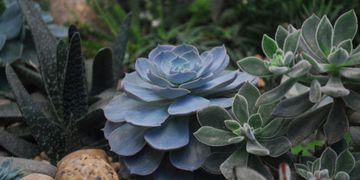The Basics of Fertilizing Your Garden Plants



When it comes to maintaining a healthy garden, fertilizing your plants is essential. Different plants have different nutrient requirements, so it's important to choose the right fertilizers for your specific garden plants. Here are some tips on fertilizing various types of plants:
Fertilizer for Rose Plants
Rose plants are heavy feeders and require regular fertilization to promote healthy growth and abundant blooms. Choose a fertilizer specifically formulated for roses, such as a balanced 10-10-10 formula or a rose-specific fertilizer.
Fertilizer for Citrus Plants
Citrus plants need a fertilizer high in nitrogen to support their growth and fruit production. Look for a citrus-specific fertilizer with a high first number in the N-P-K ratio, such as a 7-3-3 formula.
Fertilizer for Hydrangea Plants
Hydrangea plants benefit from a fertilizer that is high in phosphorus to promote blooming. Choose a fertilizer with a higher second number in the N-P-K ratio, such as a 10-30-10 formula.
Best Fertilizers for Indoor Plants
Indoor plants have different nutrient needs compared to outdoor plants. Look for a balanced liquid fertilizer that can be diluted and applied to indoor plants every 2-4 weeks during the growing season.
Fertilizer for Blueberry Plants
Blueberry plants thrive in acidic soil, so choose a fertilizer specifically formulated for acid-loving plants. Look for a fertilizer with a lower pH to support healthy blueberry growth.
Best Fertilizer for Fruit Plants
Fruit plants, such as apples and peaches, benefit from a balanced fertilizer with a higher potassium content to promote fruit development. Look for a fertilizer with a 10-10-15 formula or similar.
Fertilizer for Succulent Plants
Succulent plants require a specialized fertilizer that is low in nitrogen to prevent overgrowth. Look for a cactus and succulent fertilizer with a low N-P-K ratio, such as a 2-7-7 formula.
Fertilizer for Flowers
Flowering plants, such as petunias and marigolds, benefit from a balanced fertilizer with equal parts nitrogen, phosphorus, and potassium. Look for a 10-10-10 formula or similar for healthy blooms.
Fertilizer for Jasmine Plants
Jasmine plants require a fertilizer high in nitrogen to support their vigorous growth. Look for a fertilizer with a higher first number in the N-P-K ratio, such as a 12-6-6 formula.
Fertilizer for Peony Plants
Peony plants benefit from a fertilizer high in phosphorus to support abundant blooming. Choose a fertilizer with a higher second number in the N-P-K ratio, such as a 5-10-5 formula.
Liquid Fertilizer for Plants at Home
If you prefer using liquid fertilizers, look for a balanced liquid plant food that can be easily diluted and applied to your plants. Follow the instructions on the product label for best results.





